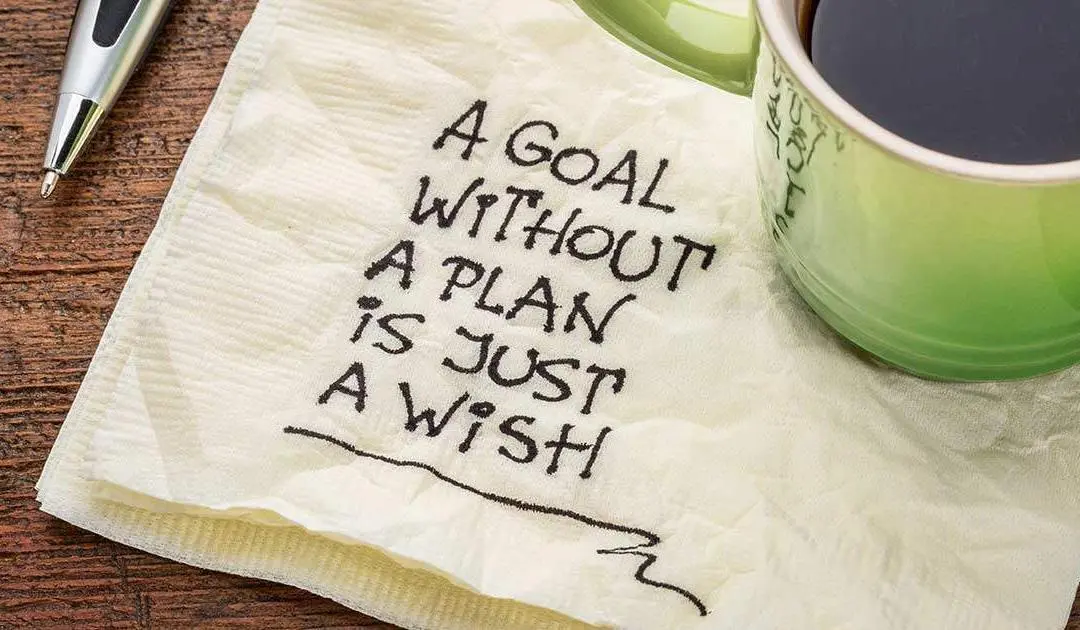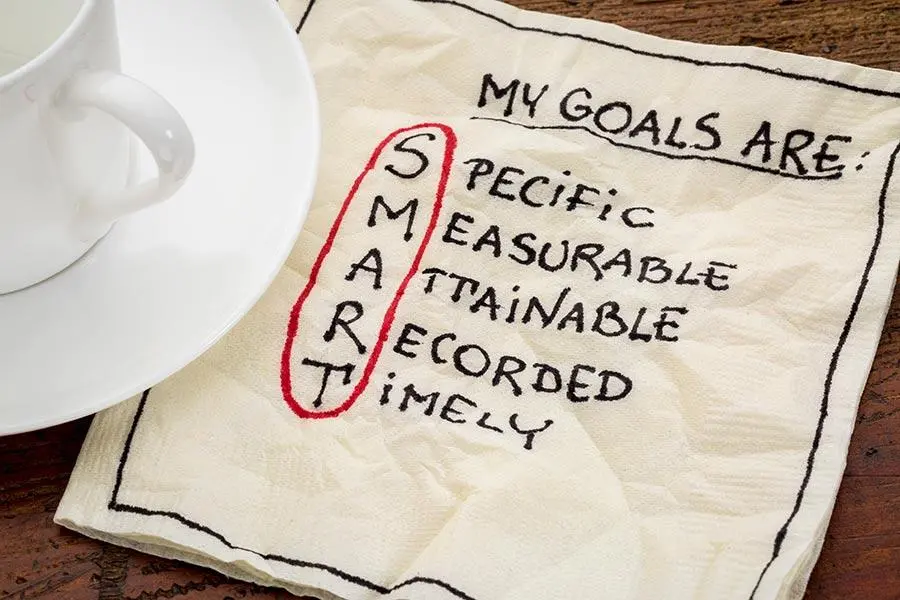It is that time of year again…when everyone starts setting their New Year’s resolutions. If you’re like most people your’s may be health and fitness related. You want to lose a few pounds, try running a marathon, or even just be more active.
Over the last three decades, I’ve helped hundreds of people achieve their goals.
So I thought I’d help you get off to a good start with some insight to achieving your goals.
First things first…
The best time to go after a goal you set is NOW.
New Year’s Day is on a Tuesday. You start on Tuesday.
There is no waiting until Wednesday after you cure your hangover. Or starting the following Monday so it is the beginning of the week.
If you expect to achieve it, you have to want it badly enough to start immediately.
I’m frequently reminded of a story I once heard about putting this concept in perspective.
This ROTC instructor tells it well…
If you didn’t watch the video…
Imagine if someone was holding your head under water. Every ounce of energy you expend will be focused on filling your lungs with air. That’s a pretty intense desire if you ask me. Well, that’s the kind of desire necessary to achieve most goals.
Are you in that state of mind yet?
If not, this a big reason people don’t achieve their new year’s resolutions. They simply don’t want it badly enough. Your biggest obstacle is yourself.
A few other common pitfalls are:
- Not removing yourself from situations that may push you over the edge.
- Putting it off until tomorrow once you already started.
- Setting too big a goal without breaking it down into smaller more realistic goals
- Not being held accountable by anyone.
- Not hiring an expert to help expedite your goal.
What are realistic goals
The most common New Year’s resolution. lose weight loss (or getting in shape).
So what’s a realistic weight loss goal?
If you do things right, it’s easy to break that “safe” two-pound weight loss a week and get closer to four to five. But, and that’s a big but (no pun intended) it’s not realistic for the average person.
So, with that said, two pounds of weight loss a week is actually realistic for the average person.
I suggest breaking each week down to one-week goals. With the next week and the next goal “waiting on deck” once the previous week is achieved and under your belt.
If you take nothing else from this article, please take and apply this concept.
There are some other great supplemental goals that will aid in weight loss and are easy to achieve.
Here are a few examples:
Go to bed 30 minutes earlier than normal
The amount of research piling up about inadequate sleep and its link to elevated stress hormones and diabetes is overwhelming. Sleep is underrated in so many ways. A good night sleep helps keep your willpower strong as well.
Eliminate desserts except for one day a week
This goes hand in hand with eliminating your sugars mentioned below.
Walk first thing in the morning twice a week before breakfast
When your glycogen stores are at a minimum and you do long slow duration cardiovascular work, you maximize your use of stored fat.
Eliminate starch from your last meal
This will keep your insulin levels down before bed. Remember, you burn very little fat when insulin levels are elevated.
Meditate for 2-3 minutes twice a week
This is so easy to do and really takes the edge off. A strong rested mind can easily stick to goals. It’s as simple as focusing on a breath in and a breath out for a short period. A little goes a long way!
Those are just a few examples of easy, realistic goals that are great for NOW.
A few great tips to get you started
Here are some of the most effective ways to lose weight in order from most effective to least:
Cut all sugar (including fruits) from your diet
This keeps insulin spikes to a minimum and makes your body more efficient at burning fat. You can read more about it in my article, Why Sugar is So Bad For You.
Stop eating three hours before bed
We burn the majority of our fat stores when we sleep. This “primes” the pump before sleep.
Eliminate starch from your last meal of the day
By doing so, you keep your insulin levels down. Remember, you burn very little fat when insulin levels are elevated.
Strength train three days a week
Although it’s only a small percentage, additional muscle tissue helps burn more calories. The most powerful effect comes from the positive changes in your hormones that occur when you strength train.
Interval of HIIT type training 2-3 times a week
This stokes the fire that is your metabolism and creates an oxygen deficit. You can read that as burning more calories for the next few hours.
Long slow duration cardiovascular work (walking) before breakfast
Once again, when your glycogen stores are at a minimum and you do long slow duration cardiovascular work, you maximize your use of stored fat.
Notice food is listed before exercise. Yes, it’s WAY more important than exercise for fat loss.
I hope this helps. I wish you well with your goals.
Remember, if you want it as badly as you want to breathe when under water then you’ll totally crush it!
Let me know in the comments…
What your goals are for 2019?
How do you plan on achieving them?







